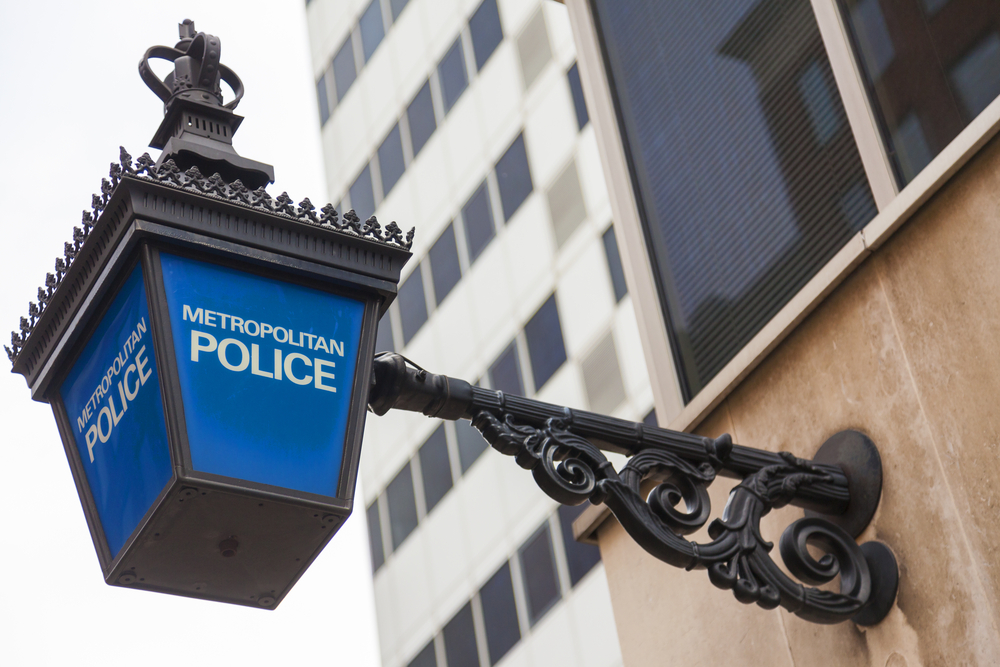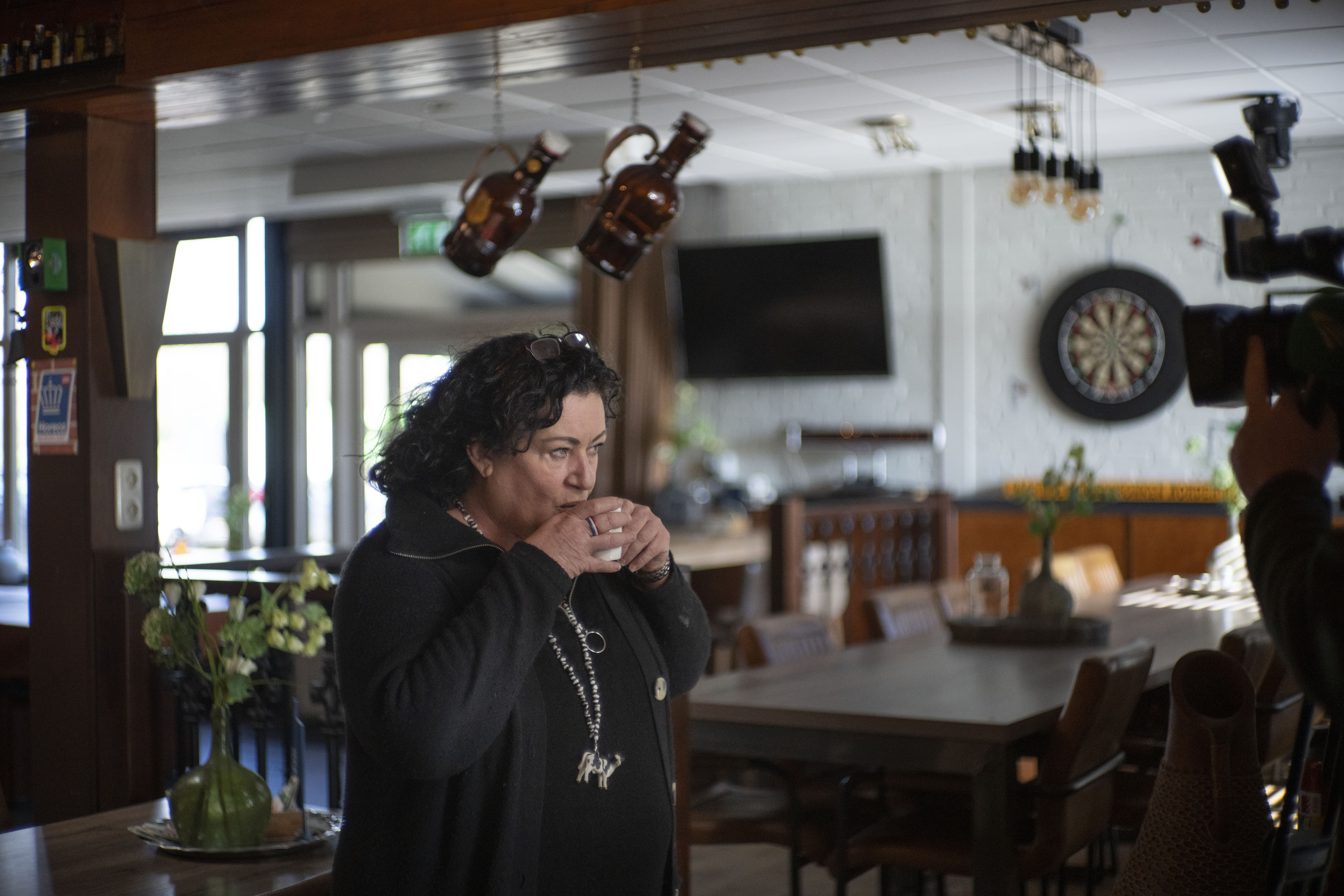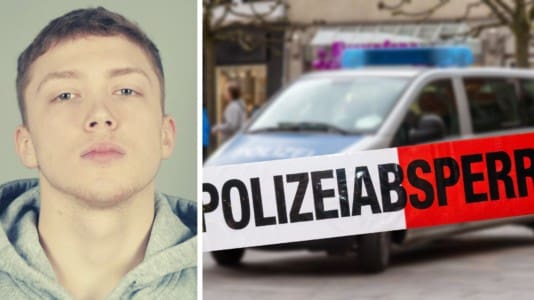Britain’s top police force has failed to protect the public after decades of systemic failure and denial over its need to reform, a damning year-long review of the organization has found.
The 363-page report by Baroness Casey into the Metropolitan Police depicted a police force littered with incompetence, complacency, and “institutional” discrimination that has now lost the confidence of the British public.
In its conclusions, the report found there to be “systemic and fundamental problems in how the Met is run,” long-standing failures to ensure the integrity of its officers, and a decimation of front-line services with neighborhood policing de-prioritized and Londoners being put last.
The damning review was published in the wake of high-profile criminal cases in the last year involving Metropolitan Police officers, including the kidnap, rape and murder of 33-year-old Sarah Everard by Wayne Couzens, who received a life sentence last year for a crime that shocked the nation and called into question the extent to which British authorities are keeping the public safe.
Policing will attract those who wish to abuse the powers conferred by a warrant card. The Met has not taken this fact seriously. Its vetting processes are not vigilant in identifying clear warning signs such as previous indecent exposure or domestic abuse from applicant officers.
The report explained in its executive summary how serious offenses such as violence against a person and sexual offenses have become far more common in London in the past decade, up from 17 percent of all crimes reported in 2012-2013 to 31 percent in 2022-2023.
Domestic abuse-related crimes have also doubled over the past 10 years to almost 100,000 a year, while the number of rape cases has risen fourfold.
Despite a sizeable increase in serious offenses, which require far more resources and take longer to investigate than traditional low-volume crimes such as theft, the number of police officers available to investigate these crimes has not increased at the same rate, placing considerable pressure on those on the front line.
The report also found that austerity has drastically affected and “disfigured” the largest police force in Britain, with its budget 18 percent smaller in real terms compared to the start of the last decade. Furthermore, a total of 126 police stations have been closed in the past 12 years, while civilian staff numbers have fallen by a quarter leading to “dedicated but over-stretched and under-supported front line teams.”
Individual testimonies by police officers painted a bleak picture of a force that is institutionally discriminatory, lacking professionalism, and incapable of keeping Londoners safe. The report revealed how “predatory and unacceptable behavior has been allowed to flourish” by some members of the force, and despite recent high-profile “heinous crimes” being committed by serving officers, the Met leadership failed to stop and question its processes.
One officer told the review the force’s rape detection rates were now so low “you may as well say it is legal in London,” while another revealed how rape cases that had been reported to the force were dropped because a freezer containing key evidence broke.
[An officer known only as] G spoke about her experience of working on a Sapphire team investigating rape and other sexual offenses, and the resourcing issues they faced. She told the Review that the unit’s freezers, which held and preserved evidence obtained from victims and survivors of sexual violence including swabs, blood, urine and underwear, would be so full it would take three officers to close them: one person to push the door closed, one person to hold it shut, and one to secure the lock. All the fridges used for rape kits were in bad shape, packed and ruining evidence.
In the heatwave in 2022, G said that one freezer broke down and all of the evidence had to be destroyed because it could no longer be used. G said a general email had been sent round to this effect and that it meant that all those cases of alleged rape would be dropped.
A particular concern identified in Casey’s report related to officers in the Parliamentary and Diplomatic Protection and Specialist Firearms Command units. The former, where both Wayne Couzens and recently convicted serial rapist David Carrick were stationed, was found to have officers who felt “unhappy, unloved, and bored.” Officers also reported feeling “isolated and unwatched,” which the report warned made for a “dark corner of the Met where poor behaviors can easily flourish.”
Meanwhile, a “deeply troubling, toxic culture” was reported within the Specialist Firearms Command unit, in addition to misogyny, which the report stated “is deeply ingrained.”
Accusations of institutional racism were also directed at the police force with Casey’s report concluding that Black Londoners are “under-protected” and “over-policed.” It revealed that Black, Asian and minority ethnic (BAME) officers make up just 17 percent of London’s police force, despite comprising 46 percent of the city’s population, and almost half of Black staff reported experiencing racism at work.
On the subject of rife discrimination, one account told the review how a Muslim officer had found bacon put in his locker, gay officers had been publicly vilified, and female officers had been forced to divulge their sex lives.
There have been a number of incidents where Sikh officers are picked on. One officer had his beard cut because an officer thought it was funny. Another officer had his turban put into a shoe box because they thought it was funny. Unless we educate our officers then this will happen.
What needs to change?
Casey’s report recommended 16 points of action to reform the police force in order for it to regain public confidence.
It proposed an immediate change to vetting standards and called for all firearms officers to be “thoroughly re-vetted,” the establishment of a dedicated women’s protection service to oversee rape and sexual offense cases, and a “fundamental reset” of stop-and-search police powers.
It also called for the Parliamentary and Diplomatic Protection unit to be disbanded in its current form, and recommended the creation of a children’s strategy to stop children from being seen as “threats” and start being viewed as vulnerable members of society in need of protection.
An overhaul of the management of the organization was also suggested including the recruitment of new specialist expertise from outside the Met in permanent — rather than advisory — roles, in addition to the creation of a new governance structure “to oversee and scrutinize the changes needed and ensure full transparency and accountability to Londoners.”
Reaction to the report
The blistering review was the subject of ferocious debate in Britain on Tuesday, as public figures and politicians reacted to the damning indictment of Britain’s largest police force.
Sir Mark Rowley, the Met Police commissioner, said “the findings are brutal and we have let Londoners down,” while Ken Marsh, head of the Met Federation, which represents 30,000 police officers, admitted that there “are some severe issues,” but added he doesn’t accept “that it’s every single man and woman in my organization.”
Home Secretary Suella Braverman told the House of Commons on Tuesday that “the vast majority of the people who serve in our Met Police force are honest, decent, brave professionals, but it is clear there have been systemic problems for far too long.
“The Met faces a long road to recovery. Improvements must be made as swiftly as possible, but some of the huge challenges for the organization may take years to fully address,” she added.
“At the moment, trust in the police has been hugely damaged by the things that we’ve discovered over the past year,” said Prime Minister Rishi Sunak. “What we now need to do is make sure that won’t be repeated, that we can regain people’s trust. Ultimately, I want both my daughters to grow up in a society that not only has trust in the police but that is fundamentally safe,” he added.
Labour leader Sir Keir Starmer warned against a failure to take proportionate action against the damning revelations in the report.
“I’ve seen reports come and go, moments like this missed,” he said, warning: “The biggest danger today is that this just becomes another report.”
There needs to be a reckoning, and there needs to be change,” he added, calling for the biggest overhaul in policing since the Met was established almost 200 years ago.





